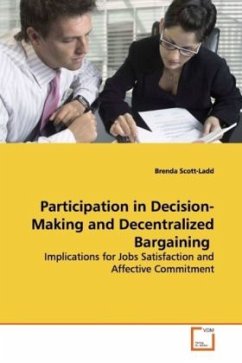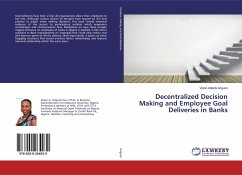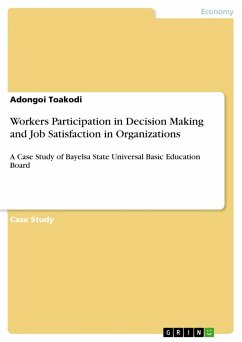This text explores the role of employee participation
in decision-making within the devolved Australian
industrial relations environment. Workplace
Bargaining aimed to facilitate labour market
restructuring and improve productivity, but also
offered employees greater opportunity to participate
in changed work practices, conditions of employment
and improve their rewards. Concerns quickly emerged
as work intensified, hours and job insecurity
increased. Was employee participation even happening?
This text reports on a cross-sectional and
longitudinal investigation, using Structural Equation
Modelling to investigate these relationships. The
results indicate that participatory decision-making
contributes to job satisfaction, affective commitment
and productivity. The caution is that increased
demands for performance need to be matched with
equitable rewards and should not extend to role
overload, which can reduce commitment, satisfaction
and ultimately effectiveness.
in decision-making within the devolved Australian
industrial relations environment. Workplace
Bargaining aimed to facilitate labour market
restructuring and improve productivity, but also
offered employees greater opportunity to participate
in changed work practices, conditions of employment
and improve their rewards. Concerns quickly emerged
as work intensified, hours and job insecurity
increased. Was employee participation even happening?
This text reports on a cross-sectional and
longitudinal investigation, using Structural Equation
Modelling to investigate these relationships. The
results indicate that participatory decision-making
contributes to job satisfaction, affective commitment
and productivity. The caution is that increased
demands for performance need to be matched with
equitable rewards and should not extend to role
overload, which can reduce commitment, satisfaction
and ultimately effectiveness.








